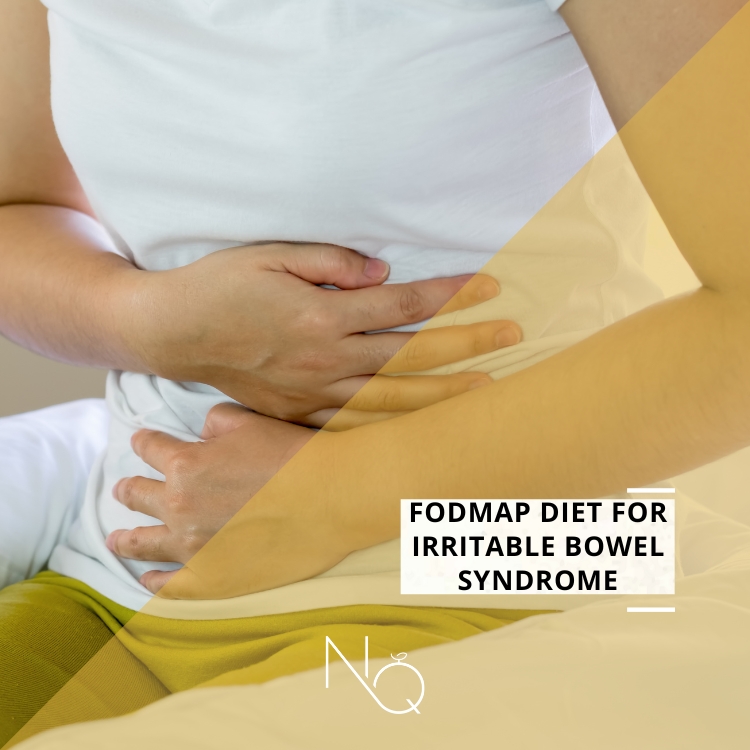In this article, we discuss Irritable Bowel Syndrome (IBS) and the diet one can follow to manage its symptoms.
What is Irritable Bowel Syndrome (IBS)?
It is a common gastrointestinal disorder with symptoms such as abdominal pain, stomach cramps, diarrhea or constipation, gas, flatulence, and bloating. The exact cause of the syndrome is not known; however, possible triggers include stress, infections, and certain medications.
The Role of Nutrition in Irritable Bowel Syndrome
Nutritional intervention is an effective tool for managing and improving symptoms. Studies have shown that 3 out of 4 people see improvements in symptoms within a few weeks of adopting a low-FODMAP diet.
What are FODMAPs?
They are fermentable oligosaccharides, disaccharides, monosaccharides, and polyols, which are fermentable short-chain carbohydrates found in many foods.
How do FODMAPs relate to Irritable Bowel Syndrome?
FODMAPs are normally absorbed in the small intestine; however, absorption is often incomplete, and fermentation by small and large intestinal bacteria occurs. This process creates the symptoms of the syndrome. Therefore, a diet low in FODMAPs can reduce these symptoms.
When a person shows the symptoms mentioned above some hours (usually four) after eating a meal, it is advisable to see a professional dietitian to assess their sensitivity to FODMAPs.
What foods should be avoided?
No specific foods that should be limited or completely rejected exist, as each person needs different management, as mentioned above. However, foods that are usually restricted include:
- Fruits, like apples, cherries, pears, apricots, figs, and watermelon.
- Flour and products from wheat, barley, and rye (bread, pasta, pastries).
- Dairy products, like milk (cow, goat, and sheep), cream cheese, cottage cheese, ice cream, and yogurt.
- Legumes, including certain types of beans (black-eyed), chickpeas, and hummus.
- Vegetables, like asparagus, broccoli, cabbage, leeks, mushrooms, and okra.
- Sweeteners such as fructose, honey, xylitol, and sorbitol.
Conversely, permissible foods include:
- Fruits such as bananas, grapes, kiwis, oranges, and strawberries.
- Cereals/grains such as corn, oats, quinoa, and rice.
- Lactose-free dairy products and hard cheeses.
- Foods rich in protein, such as eggs, fish, and meat.
- Vegetables, like peppers, carrots, eggplants, lettuce, olives, potatoes, and tomatoes.
- Nuts and seeds, like almonds, peanuts, walnuts, sunflower seeds, and their butter.
The period and stages of this diet:
A low-FODMAP diet is for short-term implementation, with specific steps to follow:
- First stage - Food elimination: Avoid foods high in FODMAPs for 6-8 weeks to alleviate symptoms.
- Second stage - Gradual reintroduction: Begins when symptoms are alleviated, by introducing foods of moderate and then high FODMAP content. One food is introduced at a time, 2-3 days apart, to determine tolerance to each food.
- Third stage - Individualization: The person follows a diet that excludes foods containing FODMAPs that cause symptoms.
In conclusion, the FODMAP diet can significantly help reduce the symptoms of IBS but not eliminate the problem. It is important to know the foods one's body tolerates to modify their diet according to the existing symptoms.
Bibliography
- Magge S, Lembo A. Low-FODMAP diet for treatment of irritable bowel syndrome. Gastroenterol Hepatol (N Y). 2012 Nov;8(11):739-45. Available from:
- Black CJ, Staudacher HM, Ford AC. Efficacy of a low FODMAP diet in irritable bowel syndrome: systematic review and network meta-analysis. Gut. 2022 Jun;71(6):1117-1126. doi: 10.1136/gutjnl-2021-325214. Epub 2021 Aug 10.




